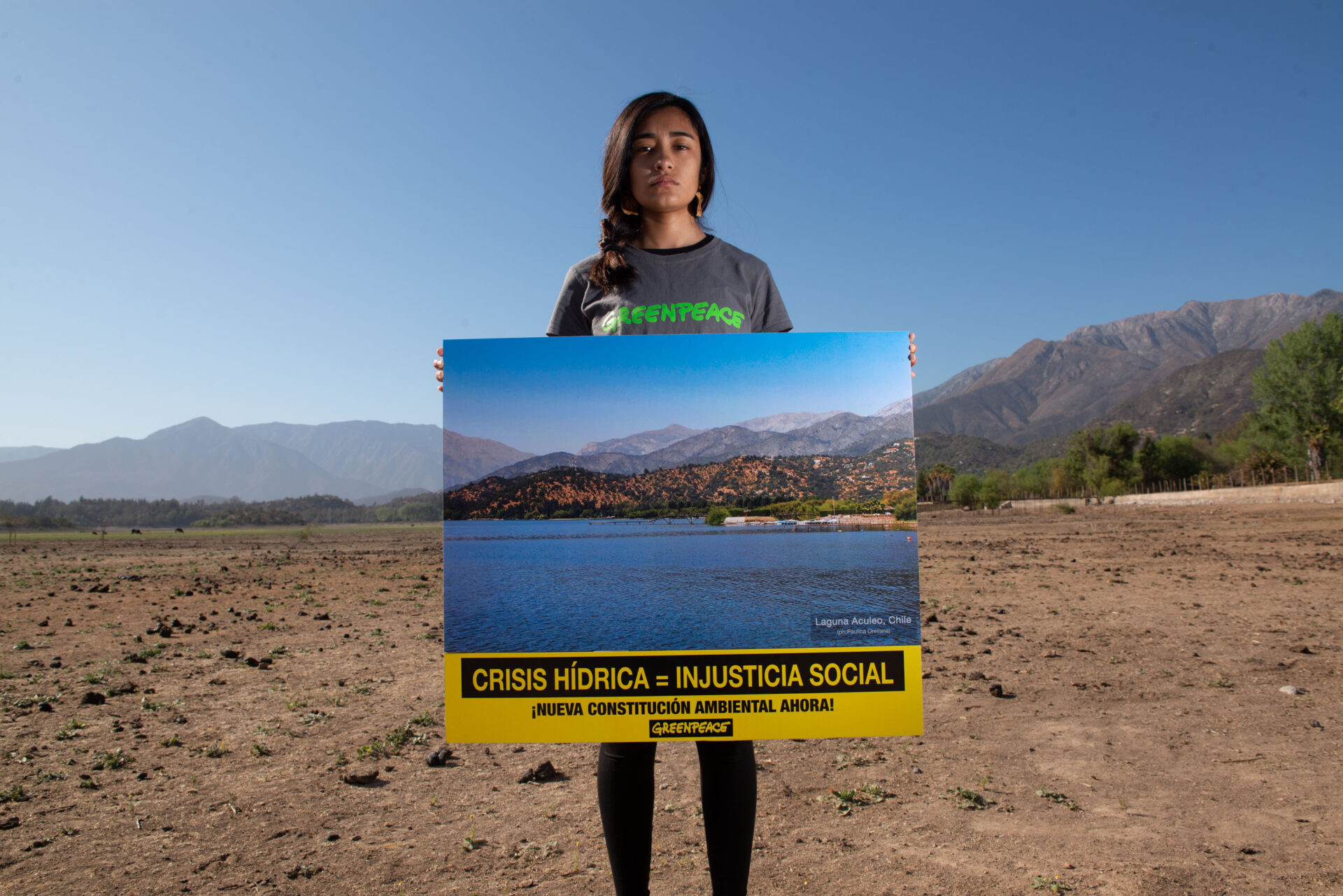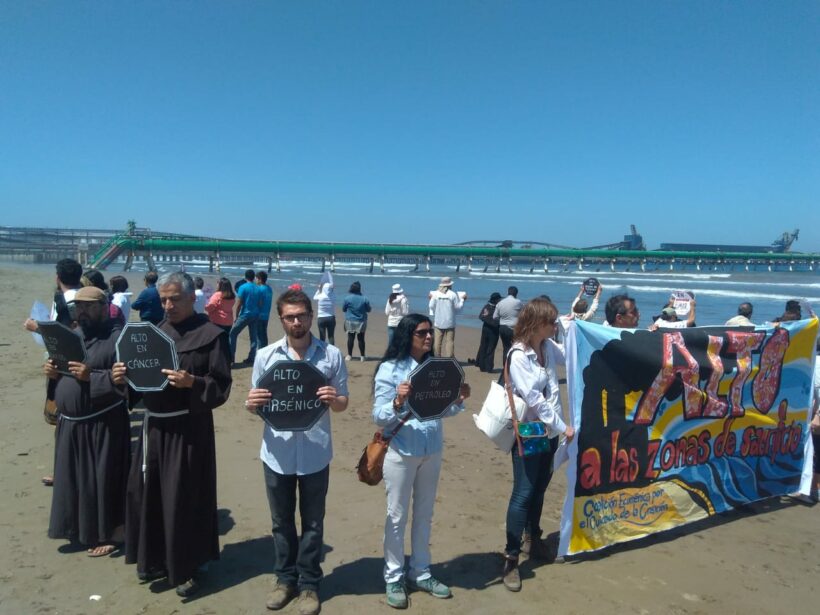Chileans are voting on a new constitution that enshrines new protections for the environment.
By Maxine Lowy
Next month, on September 4, citizens in the South American nation of Chile will go to the polls in a plebiscite to decide whether to adopt a new constitution. The existing constitution was created in 1980 under the military dictatorship headed by Augusto Pinochet, and for years many Chileans have argued that it prevents the country from being a full democracy. For those Chileans hoping to leave behind the last vestiges of the dictatorship, the new constitution promises an expansion of individual rights, greater gender equality, stronger democratic institutions, and expanded Indigenous autonomy.
If approved, the new constitution would also establish sweeping new protections for the environment and broaden ordinary Chileans’ ability to safeguard ecosystems.
The rights of nature provisions in the proposed constitution “reflect increased understanding of the multiple ways our lives are interconnected with the environment, which is linked to the economy, social concerns, and justice,” says Chilean political scientist Pamela Poo Cifuentes, who is also the public policy coordinator for Chile Sustentable. The new constitution, she adds, “will internalize the fact that there is a climate and ecological crisis caused by human hands. It is difficult for a society to advance without addressing these issues.”
The new constitution was drafted by a constitutional assembly during a year-long process that ended in July. Language about environmental protection is threaded through the constitution, and five of the constitutional convention’s seven committees drafted environmental clauses of some sort. From the outset, Article 1 of the proposed constitution establishes Chile as an “ecological” state. The constitution goes on to incorporate environmental protection in articles concerning business, economy, property, education, and government, as well as clauses directly related to water management, natural resources, and the protection of the sea and forests.
Attorney Ezio Costa, executive director of FIMA, an environmental NGO, says the new constitution “reflects recognition of planetary limits and that our actions must respect those limits.” Costa says three elements underpin what he and others term this “ecological constitution.”
First, Article 127 states that “nature has rights. It is the duty of the State and society to protect and respect these rights.” This accords legal status to the environment, which will make it easier for Chileans to file lawsuits to protect ecosystems. Currently, individual citizens or public interest groups can only file suit after an environmental impact study has been approved by a government agency. Consequently, environmental impact declarations tend to weigh in favor of industry. A key aspect of the draft constitution would permit citizens, for the first time, to question the environmental impact of projects during the evaluation phase. Another article in the draft constitution establishes the “common good of nature,” which would open the way for parties to file environmental lawsuits even if they are geographically distant from the area in dispute.
Second, there is recognition of the existence of an environmental crisis. Article 129 states, “the State must adopt actions to prevent, adapt, and mitigate risks, vulnerabilities, and effects caused by the climate and ecological crisis.” The same article mandates that the State promote “dialogue … and international solidarity … in order to address the climate and ecological crisis and protect nature.”
Third, the new constitution would create a new environmental protection enforcement structure that will extend to the local level oversight that historically has been centralized in the capital of Santiago. The constitution also establishes “the idea of public trust, which introduces the principle of national sustainability, not always present in decision-making,” Costa says.
One of the most impressive environmental features of the draft constitution is its establishment of a human right to water. The five articles that comprise the Water Statute define water as “essential for life and the exercise of human rights and those of nature” and “the State has the duty to protect water.” The proposed constitution would also establish a National Water Agency, an “autonomous entity to assure water sustainability.”

Photo Martin Katz – Greenpeace
A major constraint of democracy in Chile is its highly concentrated, powerful executive branch. The new constitution would grant provincial and local governments greater authority, including on environmental issues. This will facilitate citizen participation in environmental management and protection. “It adds more ingredients to the decision-making soup,” Costa says. “Before, there were just two ingredients: the will of the state and the will of the private sector. The new structure adds the provinces, people who live there, and the limits of nature. Decision-making becomes more complex.”
The impacts of climate change have become impossible to miss in the capital city of Santiago, where officials have warned residents to expect water rationing by the year’s end. Along Chile’s entire length, climate-change-intensified droughts are stressing local ecosystems. Yet water shortages are not always the product of climate change. Sometimes industries divert river water for agricultural production, as in the town of Petorca, which depends on cistern trucks while across the highway hills are green with an agro-export firm’s avocado groves.
Companies’ privileged and limitless use of water and other natural resources elsewhere stems from the country’s present constitution. Laws from the dictatorship era have allowed industries such as mining, agribusiness, and forestry to freely exploit natural resources. The subsequent democratically elected governments accommodated to that constitution, perpetuating the military regime’s vision of a deregulated, extractivist economy.
It is a view that comes into sharp focus in the communities along the central coast that have become sacrifice zones. In the name of progress, one government after another has allowed coal-fueled power plants and oil refineries to spout dark fumes and residues laden with heavy metals that contaminate the soil, water, air, and beach, affecting the livelihood of fishermen, farmers, and recreation and contributing to serious health problems such as cancer.
“It is a model with a utilitarian and anthropocentric view of nature that the progressive governments of the ’90s shared,” says Poo Cifuentes.
The current effort to enshrine a whole new constitution marks the culmination of years of social and political unrest in Chile. Nearly 10 years ago, Chile saw half a million people in the streets protesting a proposal to build five hydroelectric dams in the pristine river basins of Patagonia in southern Chile. After years of hearings, the companies relinquished water rights and brought an end to their controversial projects. More recently, in January 2022, a court ended a conflict spanning two decades when it ordered Barrick Gold, a Canadian company, to close its mine extracting gold from under a glacier, which left the agricultural valley below without water.
Such movements sparked broader environmental consciousness in communities across Chile and galvanized networks pursuing environmental justice. Many of the 154 delegates elected to the constitutional convention were people who came from places directly affected by environmental conflicts.
The constitutional convention stemmed from a mass social movement that rocked Chile beginning in October 2019 and which was halted only by the pandemic. Its demands for social and economic equity pinpointed the constitution of 1980 as the root of problems affecting a broad cross-section of the Chilean population.
The government reacted to those 2019 street protests by deploying troops alongside police for the first time since the Pinochet era, which resulted in hundreds of serious injuries and condemnation from international human rights entities. President Gabriel Boric, a congressperson at the time, brokered an agreement among all political parties to hold a national referendum on whether to draft a new constitution. In October 2020, 78 percent of the electorate approved the idea of replacing the constitution through a constitutional convention. After 12 months of deliberations on citizen-generated initiatives, the convention adjourned July 4, giving voters two months to study its contents.
Chile is not the first country of the region to introduce environmental language in a constitutional process. Bolivia, in 2009, and Ecuador, in 2008, enacted constitutional reforms that incorporated Andean First Nations’ notion of Pachamama (Mother Earth) and Buen Vivir (good living). But observers in Chile believe those efforts fell short of their original vision since they didn’t provide mechanisms for environmental enforcement. Neither country translated utopian ideals into concrete measures. Rather, the extractivist model shifted from the private to the public sector.
Costa and Samuel Leiva, coordinator of the environmental coalition Sociedad Civil por la Acción Climática, attribute this to the top-down nature of the constitutional reform in those countries, spearheaded by sitting presidents. In contrast, the constitutional overhaul in Chile has been driven by civil society. The draft of the new Chilean constitution, they say, contemplates a balance of power that should strengthen immediate environmental protection and avoid the obstacles faced in Bolivia and Ecuador.
Dutch eco-feminist theologian Arianne van Andel, who has lived in Chile nearly 20 years and is coordinator of the Interreligious and Spiritual Alliance for the Climate, points to what she thinks is the most radical part of the proposed Chilean constitution: “Instead of the notion of nature at the service of human beings, this constitution shows how human rights and rights of nature are completely interconnected. That is the paradigm change Chile needs for facing the climate crisis.”
With the plebiscite just weeks away, citizen approval of this bold, new constitution for Chile is by no means a foregone conclusion.
Forces resistant to change sought to discredit the convention and its objectives from the start. Unable to override the two-thirds majority required to adopt articles, a bloc of 37 conservative delegates, self-proclaimed defenders of the constitution of 1980, circulated disparaging comments about other delegates and fake news, such as the rumor that the new constitution eliminates private property. Other clauses—such as one that replaces the senate with a regional body—have come under fire from some who initially supported the constitutional process.
Perhaps nothing more clearly illustrates both the excitement and divide of these times than the fact that the constitution has become a national must-read. After its release in early July, the constitution rapidly became the top bestseller, with thousands sold on every street corner and in bookstores. It is also downloadable and handed out for free throughout the country.
President Boric has called on Chileans to read the text and inform themselves about what it includes. On the other side of the political spectrum, leading opponents of the new constitution say ordinary citizens are not capable of understanding its content and decry the 1 million copies printed by the government as a waste of paper. The coming weeks promise to be a time of heightened polarization, as positions consolidate between apruebo (approve) and rechazo (reject).
Ultimately, Chile’s voters will have the last word on whether nature will come first.

Photo Javier Torres AEP












